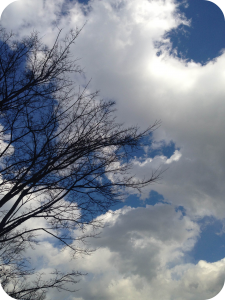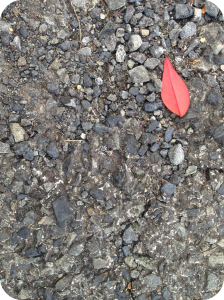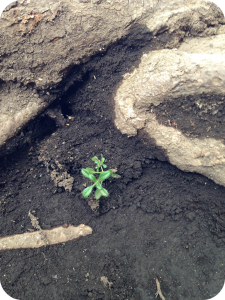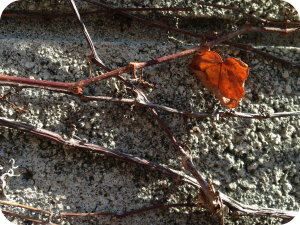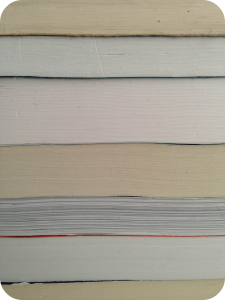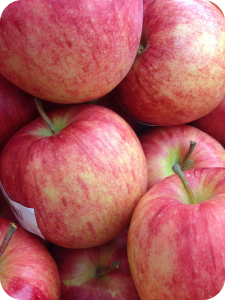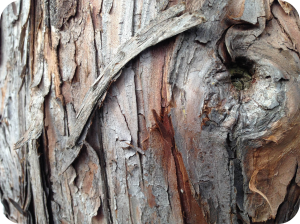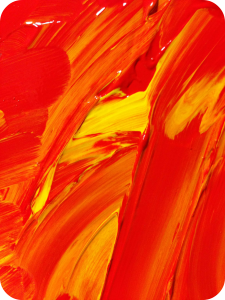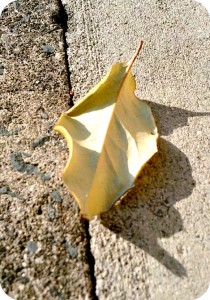Posts Tagged ‘body’
Portland, Oregon / Spring, 2002
“How’s this pressure?” I asked, pushing my forearm into the long muscles of Linda’s upper thigh.
“Perfect,” she said, turning her head to the side in the face cradle. “You can continue that way up into my hips.”
Linda was a favorite of mine, as far as regular clients went. She came to me for bodywork about once a week, and we generally chatted amiably throughout our sessions.
After working the tissues in her hips and feeling some release, I began to rock Linda’s pelvis back and forth, letting her body move side to side with its own momentum, waiting for it to come back and meet me before gently pushing again.
This was a move Linda generally enjoyed quite a lot, and I watched her body sway with it, allowing the vibrations running through her to have their effect.
But after a moment her breathing started to catch, quickening and becoming shallow. I heard a sniffle and moved my hand gently to her lower back, letting her body come completely to rest.
“Are you OK?” I asked, moving closer to her head, my hand still on her back.
She turned her face to the side, tears streaming from her eyes. “I don’t know why I’m crying,” she said apologetically.
“It’s OK. Let’s just let it be how it has to be,” I answered. “What can I do for you?”
“A tissue?” she asked, sitting up and gathering the sheet against her as I handed her the box.
Her face was crumpled in a pain that I intuitively knew wasn’t physical. She let her head hang, sobbing, and her body shook in waves.
Sensing that she didn’t need to be touched, I stood back, waiting. At last her body came to rest and a peace fell over the room.
She looked up at me and said, “Do you ever feel …? It’s just that sometimes I get the feeling that nothing is ever enough. That no matter what I do it’s not enough. I just keep going, keep running, keep working, but it’s not enough. Is that crazy?”
“I think that’s a fairly common feeling, actually. Not crazy at all.”
“Is it?” she asked, her face lifting hopefully. “You think lots of people feel that way?”
“Absolutely,” I said. “I do.”
“Well, that’s a relief,” she said, sighing and turning again to rest face-down on the table. “Will you work on my hips again? Just a bit more?”
I continued with the rest of the massage, finishing with my hands gently cradling her head as she lay supine on the table. Her face was smooth and open, her lips curved softly upward.
As she walked out to the front desk, Linda’s gait looked looser, freer. Handing me her check, she grasped my hand and held it for a long moment, looking directly in my eyes. “I just want to thank you,” she said. “That was exactly what I needed.”
“My pleasure,” I smiled.
And it was.
The mind works tirelessly to keep us in line. It talks to us, ceaselessly chattering. It tells us we’re good or we’re bad or we’re right or we’re wrong, we’re gorgeous or we’re hideous, we’re wonderful or we’re worthless. Sometimes it tells us all these things within the span of a single moment.
It gives us all this conflicting information because it’s instantly reactive, like a startled cat. It doesn’t always understand exactly why it’s threatened, and it often reacts before it can even find out, to keep us safe and protected.
There are adaptive reasons for all this, of course, and our mind is to thank for our survival. Its understanding of how to behave has helped keep us alive and fitting into our families, schools, culture. It has analyzed our world and come to understand what’s expected of us, then programmed itself to keep repeating all the messages it deems necessary to help us survive.
Problem is, many of these messages are very outdated. Or, at the very least, could use some reinspection.
The mind is often right that we can’t just, for example, jump up in the middle of class to go play outside in the dirt. But we can also use these opportunities to gently challenge these ideas by asking questions: Why not? If not now, when? Where? Is there a place where this could be allowed, indulged? If not, why not?
Thoughts are merely thoughts, after all, and not problematic when they’re recognized as such. It’s when we unquestioningly believe them to be true that we run into difficulty, because they’re so often obsolete ideas suited to situations that haven’t been relevant for years, or even decades.
A main function of the mind is to control the body, which is also essential. After all, we need to wait sometimes to eat, to sleep, to use the bathroom, and the mind helps the body manage that.
But because the body also has important urges and needs, it’s necessary to let it have its say, to find a way to do what it wants to do. The body has a different kind of intelligence than the mind does, with messages that are just as vital for the full living of our lives. We’re taught to ignore our bodies, to push them down, to tame them. But no animal–and your body is an animal–can ever be fully tamed. Its natural way of operating is to move, to open, to vocalize, to take its place in space, and it must do that. It must.
To think our bodies can or should be wholly tamed is a dangerous and pernicious notion. Our bodies are treasure troves of information and understanding, just waiting to be accessed. To close ourselves off from their messages is to squander one of the greatest gifts of being alive.
Where have you tamed yourself, and where might you open up? Where could you listen more deeply? What might you hear if you did?
Sunlight streams through the open window next to me, and the early spring breeze carries a fresh, inviting brightness with it. Reluctantly I turn my body back in toward the classroom, where in contrast the light feels paltry, dim, inadequate.
I focus my attention on my notebook, endeavoring to catch up. The professor speaks in his usual engaging way, and the other students are present and alert.
We’re talking about Wittgenstein, and it’s unbearable. I’m not entirely sure why, but my mind feels pressed down upon by the weight of other people’s thoughts. It’s as if I’ve been trying to carry all of them stacked upon one another like thousands of aging, translucent pages–feeble, fragile, no longer alive with relevance.
My gaze drags back to the day outside, to the bright reflectiveness of the soft blades of grass, the buds on each tree branch urging themselves outward. I ache to join it all. My body is nearly in revolt, refusing the reality of the room I’m in, longing to get out.
I notice how the roots of the trees clench the earth, like fingers digging into it, and have to fight the nearly irresistible urge to leave my chair and go kneel out there. Kneel on the slightly damp dirt and dig my hands into it, the way the roots of the trees cling to the earth but are also just part of it, extensions of it. As am I. Just an extension of all that dirt, that grass, those roots, the buds, the branches, the sunshine.
I want to put my hands in it, to feel the texture of the soil, to smell it, to know what it’s like to get my own roots in there. To dirty myself, to be part of it. Part of the day, part of my own life.
It’s almost erotic, this yearning, and I find myself fidgeting in my chair. I want to engage, and not with thoughts or ideas. I want to engage with the dirt of the place where I live. I want to mix with the life that’s in evidence right out there, just feet away from where I sit.
My mind controls me, keeps me in my seat, but I can’t concentrate. My only thoughts are of what my body wants and needs–to get out as soon as possible.
After class, I go lie in the grass, resting my head on the stack of books inside my bag. As overwhelming as the urge had been to be out here, I can’t just kneel and dig my hands in the dirt. What would the people passing by think?
So I lie still, looking up at the sky between the branches of the trees, imagining what I’ll do with my life once I’ve got the degree and am free of the confines and the ideas and the rules and the way things always have to be just so. Free to dig my hands into whatever I want.
Our whole selves are instruments.
Fully engaged–with our minds, bodies and emotions open and functioning–we are instruments perfectly calibrated to sensing the world around us. When we’re in alignment, we effortlessly feel into our world, interact with it, live as a fully integrated part of it.
Because in actuality there’s no way to disconnect our own wholeness from the wholeness of everything. It’s all connected, an infinite and vast web, wholly incomprehensible in scope and yet also somehow astonishingly accessible to us.
What we can do, however, is disconnect from our own wholeness.
When all is functioning well, our interconnection with the world is palpable on a visceral level, and accessible directly through our senses. Our bodies are constantly taking readings on our surroundings, physically noticing what might be dangerous, or what might be enjoyable. Situations are called to our attention through sensations or emotions–fear, anger, interest, attraction.
When our attention isn’t focused on the body’s messages, it can be easy to just let these things pass unnoticed, to miss essential cues that might otherwise save us inconvenience or even injury, or might lead us to a fulfilling experience.
When we ignore this information, as we often do, we shut ourselves off from the wholeness of our lived experience. From an early age we’re taught to let the mind take precedence, to allow it to cut us off from other ways of knowing and interacting. Without us even consciously noticing, the mind directs us to sit still, to wait, to persist, to keep quiet, to do as we’re expected to do.
These are all necessary skills, of course, and important to be able to rely on in certain situations. But they’re not always necessary or called for. We learn to police ourselves diligently and thereby cut off parts of our own experience and knowing that could help us live our lives more fully.
The body and emotions, when listened to, open up whole new vistas that we may have forgotten existed. The experience expands, widens, deepens, and the world becomes not the place we thought we already knew, but something vibrant, mysterious, fascinating. And as we let ourselves notice and engage in this way, we find ourselves guided by an inner knowing that has nothing whatsoever to do with rational thought.
This can lead to simple coincidences–the finding of a thing we’ve been searching for–or it can lead to circumstances much less explicable, much more engaging. It can lead us to new thoughts or ideas, to adventures we’d never otherwise have had, to travels we’d not have dared undertake.
The most beautiful aspect of intuition, perhaps, is the fact that it’s available to all of us, all the time. At any moment your whole self is waiting for you to listen and respond to it. And every time you do, with every action you take in response, the voice of your intuition becomes stronger, bolder, better able to support you.
What’s there right now, waiting to be sensed?
I cross the street from Nørreport Station and step into Fiolstræde, enjoying the light of the early spring morning on my well-worn path to school. A man stands eating a sausage in front of the hot dog wagon. Cyclists roll over still-wet flagstones, and pigeons loiter hopefully in front of the vegetable stand. What was once foreign is familiar now, and dear to me.
Normally I pass the bookstore on the corner with some curiosity, but I almost never go in. There’s a book I’ve had in mind, though; a particular passage in a book, actually. I’ve been fruitlessly searching Copenhagen’s bookstores for it since shortly after I arrived nine months ago, and suddenly feel the urge to try again.
The clerk looks dubious when I tell her the title of the book, but asks for a few minutes to research whether or not they carry it.
I make my way through the Danish titles and settle in the children’s section, where a beautifully illustrated copy of H.C Andersen’s stories lays waiting to be read. Much to my delight, words that would’ve made no sense just months ago unfold into meaning. I’m still engrossed when the clerk approaches, looking apologetic. The book could be imported for me, it seems, but at a steep price. I thank her and step back into the street.
At idle moments throughout the day I try to excavate parts of the passage from my mind, but I know it’s still not right. Frustrated, I go to the school’s library and run an internet search, but turn up nothing.
Late that afternoon on the train home, I try to focus on my reading but end up staring out the window instead. It’s gently raining again, and the clouds hang low in the sky. Drops of water slip down the window, only slightly obscuring the passing scenery. I watch the red-tiled houses, the streets, the cars, the shops. A pair of teenage girls walk arm-in-arm. A mother pushes a large black pram across an intersection. All the while my brain works, trying to tease out a clearer memory of the passage I’ve become stuck on.
Descending the stairs in the station, I pause before turning toward home and instead go in the other direction. I’m not entirely sure why, but I head past the grocery store and the entrance to the shopping center.
My eyes sweep across the square and my attention catches on the glass enclosure of the library’s entryway. I’ve only been in once or twice, but I’m unquestionably drawn to it now. There’s no chance of my book being there, I know, but it’ll be fun to look.
The English section is small, tidy, spare. I peruse the shelves, curious. There’s nothing to surprise me there: Austen, Dickens, Hemingway.
But, suddenly, there–on the second lowest shelf, in a small library in a suburb of Copenhagen–stands the very familiar spine of my much longed-for book.
Right where I’d never hoped to look.
This shouldn’t be such a big deal. Why does it feel like a big deal?
You fish in your bag, checking for your keys. Still there. Wallet too. It’s okay. Everything’s okay.
It’s mid-morning in grimy, glittering, early-summer Chicago, and you’re alone in the world. Or, at least, alone on your way to the grocery store.
There’ve been so many firsts these last few weeks. First time moving to a city, first time living away from home or the insulated world of your small college, first time looking for a job with no connections whatsoever. And now this: your first time going to a grocery store by yourself. Somehow this is the most intimidating task yet. In some deep and undeniable way, it signifies an ability to take care of yourself. It means you’re one step closer to full adulthood and its attendant weights and responsibilities.
As ridiculous as it seems to you, you’re awash in anxiety, unsure you can do this. And yet you push onward, your stride purposeful, careful to arrange a look of assurance about you.
As you step through the automatic doors of the grocery store, your mood lifts somewhat at the sight of the vivid colors spilling out from the florist’s corner. The frigid air of the produce section is startling and you pull your hands to your upper arms, rubbing your skin to bring yourself some warmth, indulging in a secret half-hug.
Then, approaching a stack of apples, you suddenly realize that you’re not choosing for anyone but yourself. You can have exactly the apples you like. As you walk around collecting items in your basket, the fear that’s been squeezing your stomach begins to relax its grasp.
It’s just a grocery store, after all. In fact, browsing around, choosing carefully, thinking about the meals you might eat–it’s all kind of fun. Exhilarating, even. There’s a power in it, an enjoyment. This is your morning, your day, and you’re making decisions with it. Decisions that will affect your future, if only the future of your meals. Is this what it feels like to be an actual grown-up, driving your own life?
Walking home, you find that your step has a natural power to it; you’re not putting it on. Something has shifted back there amid those stacks of cans and boxes, between the pyramids of produce. You carry the grocery bags with a sense of assurance, one on each arm. This is a thing you can do.
After dark you visit the outdoor pool of the building where you’re staying. Completely alone, you slip into the water, savoring the freedom your body finds there, relishing the sensation of warm air on wet skin. Finally you let yourself come to rest on your back, floating weightlessly and studying all the lights surrounding you: those of the city, those of the sky. The moon’s lifted up high tonight, partial but luminous, far above any of the skyscrapers and incomparably beautiful.
It’s okay. Everything really is okay.
The gifts of the senses are easily taken for granted. Surrounded as we are by constant stimulation, we forget to pay attention, to notice, to appreciate what we experience.
Bombarded by sound, we shut down to the ordinary noises we hear–a TV nattering in the background, the ocean-mimicking whooshing of passing traffic. Casually, we overlook sights that would have arrested and enthralled any of our ancestors just a few generations back–a man walking down the sidewalk talking on the phone, a woman casually flicking through a magazine on her iPad as she waits for the bus. Common miracles.
Passing a corner restaurant, we catch the scents of foods we didn’t know as children. We taste combinations of flavors never before considered possible that now seem run of the mill.
And our whole world has been smoothed over. Not just the pavement laid down nearly everywhere we care to go, but the very surfaces we touch on a day-to-day basis are more often than not smooth and uninteresting to the touch. Fleece jackets, credit cards, smartphone screens–so much of what we place our hands on is designed to feel as delightful–or unnoticeable–as possible.
But sometimes the animal self perks up, senses alert. Like when we go out into the day just after a rain. Maybe there’s the smell of dirt, wet and invigorated. Or the sound of a bird calling out as it passes overhead. The sight of high tree branches rustling in the post-rain wind, the feel of the newly-visible sun on exposed skin. All the world awake again.
These things are often present, of course, but we forget. We forget because we perceive so much all the time that it’s hard to keep perceiving. We’re overwhelmed, overloaded. We have to back away, to shut down a bit, to dull ourselves, so that it all doesn’t become too much.
We’re just animals, after all. Miracles of blood and bone that can only change so quickly. We startle, we tire, we grow hungry. All the effort put into smoothing out the world around us can’t shift the essential animal nature of each of our bodies, or its needs.
To seek out textures sometimes, to find the things we love to sense, is an adventure worth having. What do you sense that moves you in some way? Can you let these experiences in? What’s it like to sense, to truly experience what’s there? What’s worth knowing, worth remembering, worth integrating on the ride of this human life?
What happens if you turn on some music and dance exactly the way you want to? Or if you scoop up paint with your fingers and smear it on a canvas? If you try cooking a favorite recipe of your grandmother’s? If you run your hand over the bark of a tree trunk? If you stop and listen–really, actually listen–to the person speaking to you?
What happens then? Is it smooth? Bumpy? Scary? Exhilarating? What happens then?
September, 2012
Tokyo, Japan
Kneeling on the floor blindfolded, I reach out with my right hand, searching. I have a sense of the general area of what I’m looking for, but can’t quite locate it. My hands grope in the air, sightlessly seeking.
And then a finger touches the smooth wetness of paint glopped onto my palette. Ah!
I smile, dipping the fingertips of both hands into the unseen colors, savoring their coolness. I lift my fingers, the paint clinging to them, and reach each hand out to either side of me, putting them down onto the rough white canvases waiting there.
I can picture the blank surfaces in my mind’s eye, imagine them being smeared with the reds, yellows and oranges coming off my fingertips, but not knowing for sure what they look like is exhilarating.
The beat of the music picks up and with it I dip my hands to the palette again, this time mixing the colors by gently rubbing my fingertips together. I put my hands to the canvases, moving with the beat, letting the music inform my every gesture, letting it become part of the painting.
Leaning again to the palette, I pull up more paint, scooping with my fingers and delighting in the sensation. Again I reach down to the canvases, body rocking, hands echoing the movement of the rest of my body, my fingers the very focus of the dance.
What’s happening underneath them? My only perception of the paint is through the touch of my skin, and in the unfamiliarity of this way of knowing I’m swept into a joyous reverie. I don’t know exactly what’s happening and I love it; I can’t see what kind of marks I’m making and I don’t care. I only want it to keep going, only want to keep living this feeling, keep experiencing this interlocked dance of body, paint and music.
The sensitive tips of my fingers are starting to become slightly bothered by the uniform bumps of the canvas, their subtle roughness more and more apparent as I continue to touch them.
Undeterred, I move my hands to the paint again, this time meeting my palms in front of my chest, feeling the paint warm with my touch. I wonder what color they are now, my hands. The urge to peek at what’s happening suddenly becomes nearly too much to resist, and yet I know that looking would somehow break the spell of this moment, and so hold back.
When a break comes in the music I find a natural pause too and lift my forearm to my face, pushing the blindfold from my eyes. To my right and to my left lie two paint be-smudged canvases, lively and glowing. Their frenetic energy pops out at me, a visual representation of the joyous wave I just rode.
They’re just finger paintings, yet caught in them is something else too. Dynamism, motion, energy. The pure bodily enjoyment of movement and touch.
May, 2003
Mount Koya, Japan
I hate this. I fucking hate this.
The thought curled up into my consciousness like a coil of smoke from the incense burning on the dais. The monks leading our meditation practice sat silent, as did everyone else. My thoughts were the loudest things in all existence.
Sitting back on my heels, a position called seiza in Japanese, my legs had already lost all sensation. As unobtrusively as possible, I wiggled myself back and forth. It helped momentarily, but then the tingling deepened, expanded, painfully filling my experience so no other thought could enter.
Opening one eye, I snuck a look at the friend I’d come with. She was sitting in seiza with seemingly effortless ease, breathing deeply, her stomach expanding and contracting with a naturalness I envied.
I’m not supposed to be here. I’m not cut out for this.
It’s not that I’d planned to be there. Having arrived in Japan less than a month earlier, I hadn’t made any plans for the holiday week that straddles the end of April and beginning of May. When my coworker mentioned the trip she was taking to Mount Koya, I’d asked if she minded me tagging along. She’d seemed happy to have a companion, and I’d been thrilled with the trip up to that point.
But somehow, sitting there trying to keep completely still, I felt that everything about the situation was wrong. I wanted to get up and run, twirl, kick, move. Feel my body. Shout. Scream, even, just to feel anything at all.
How much longer?
We’d trundled up there in a very old train, only a few cars long. It’d been charming and beautiful, climbing the mountain that way, watching the towns and villages pass by with their tiled roofs and hilly streets. As we’d climbed it’d gotten colder and colder until, at the very top, the weather was almost winter-like even as spring had fully descended at the mountain’s base.
Upon our arrival, a kindly monk had led us to our small tatami room with a sliding door, two futons stacked on the floor, and a kotatsu, the room’s only heating source. Before dawn the next morning, the same monk had come to get us for meditation practice. Following him along the path tracing the rock garden, I’d been excited to experience sitting in meditation. But the sitting itself felt interminable, unbearable, physically impossible.
What’s wrong with me? I can’t even meditate for half an hour. I suck in every way.
The taunting of my mind was far more painful than the experience in my body. Comparing, complaining, worrying, wondering, my mind mocked me ceaselessly, telling me how bad I was, how stupid. How I’d never be right. How everything I was doing was wrong.
I cracked open my eyes again to surreptitiously study the faces of the monks sitting in front of us, peace saturating their features. What was it they were experiencing? And could I ever find it too?
We all have these moments sometimes, don’t we? Fleeting, maybe, and rare, but we all have these moments of suddenly noticing the fact that we’re alive. After days or weeks, months or years of having all but forgotten, there’s a jolt of recognition and there we are, electrified with the awareness that all of life is pulsing around us. That the moment where we stand is the only moment, and that in that moment everything is connected to everything else.
They often show up when we’re caught off guard, these moments, when something unexpected happens or when for one reason or another we find ourselves acutely noticing our surroundings. When beauty catches us unawares and suddenly we expand into it, tiny energy-fine tendrils of ourselves keenly aware that they exist in a vast, infinite network of tendrils that all live and beat and breathe together. This is the deepest truth of what we know at a visceral, cellular level. That we are alive, that we are aware, that we are all connected to each and every thing in existence in some achingly, powerfully beautiful way. And we feel it in a way that is incomparable to any other feeling.
And, if we pay attention, we notice that it is a feeling rather than a thought. It’s not brought about by logic, by careful dissection, by intense mental focus.
Let me be clear: I’m a big fan of logic and reason. They’ve brought us countless gifts, and they’re valuable beyond measure. But they’re only capable of accessing part of the world, and therefore part of the truth. When we restrict ourselves to operating solely within their realm, we close off vital ways of knowing that are just as valuable, just as interesting, just as compelling.
This is something that we do regularly in our culture, though; we shut down our bodies, shut down any way of knowing that isn’t rooted in logic. Many of us spend our days living in a mental world, disconnected from the awareness of our bodies and the parts of ourselves that don’t “make sense.” As we grow up we find it easier and easier to sort, to categorize, to believe that we have it all figured out. And when that’s the way we approach the world, our vision shrinks and narrows until our way of seeing the world is so cramped as to barely allow anything new to enter. When this happens we think we already know what we need to know, and anything that doesn’t fit into our worldview can be discarded as irrelevant, uninteresting, or just plain wrong.
But when the chance comes to take a step back, to re-enter the body and its moment-to-moment experience, fresh information is once again free to flow in, to bring us into the awareness of our whole selves–not limited to the selves of our minds. It’s all there in the ever loyal and patient body, accessible to us anytime we’re willing and able to feel for it.
